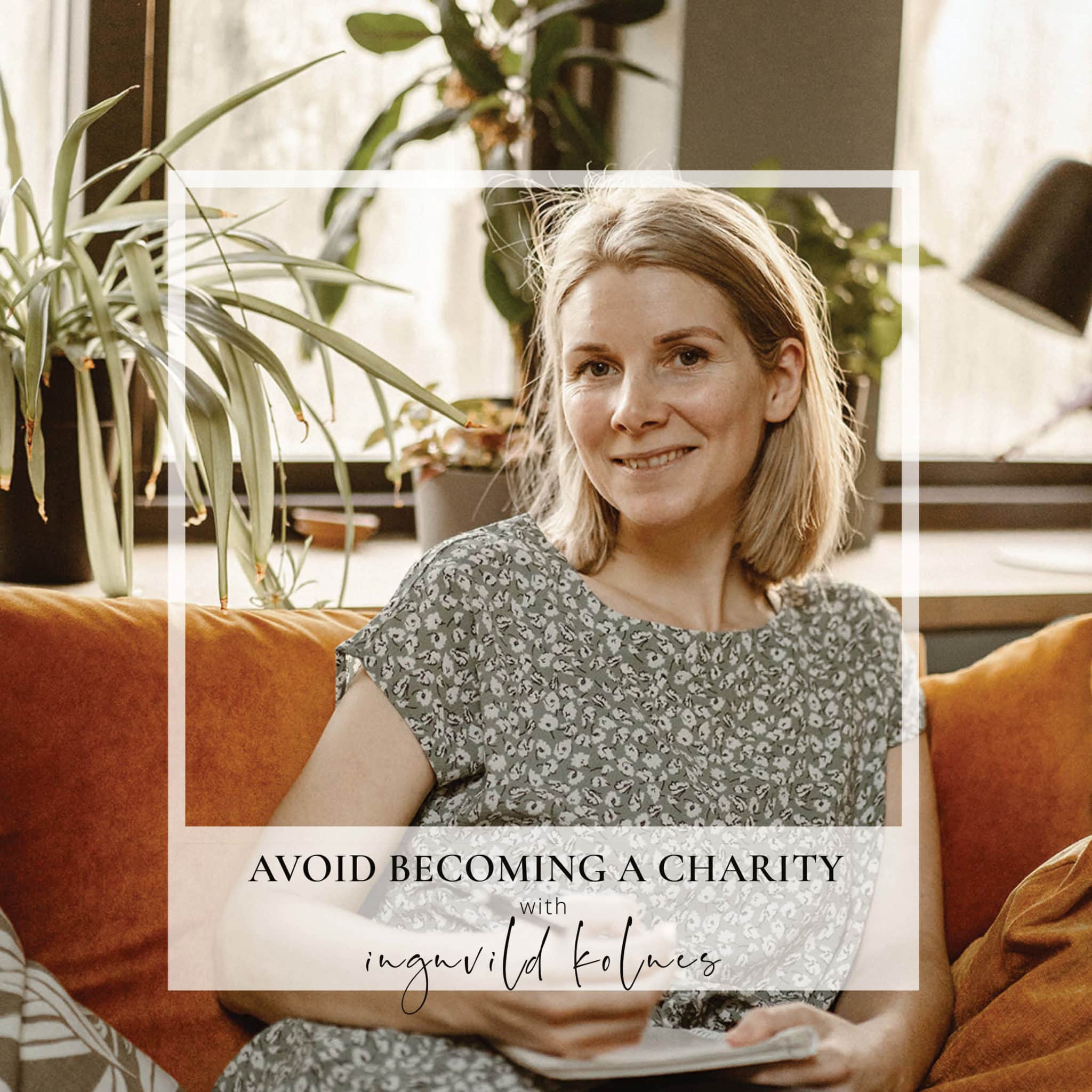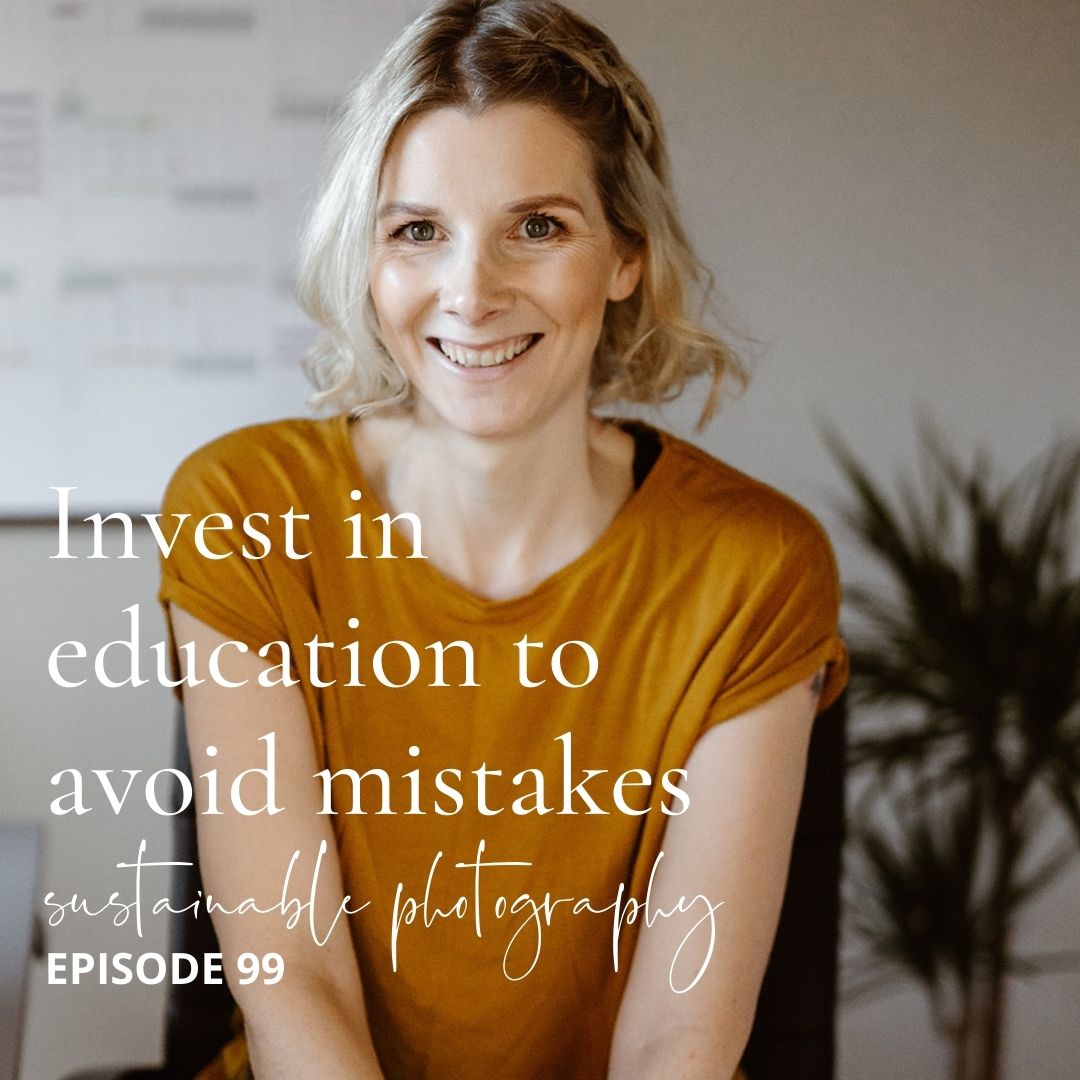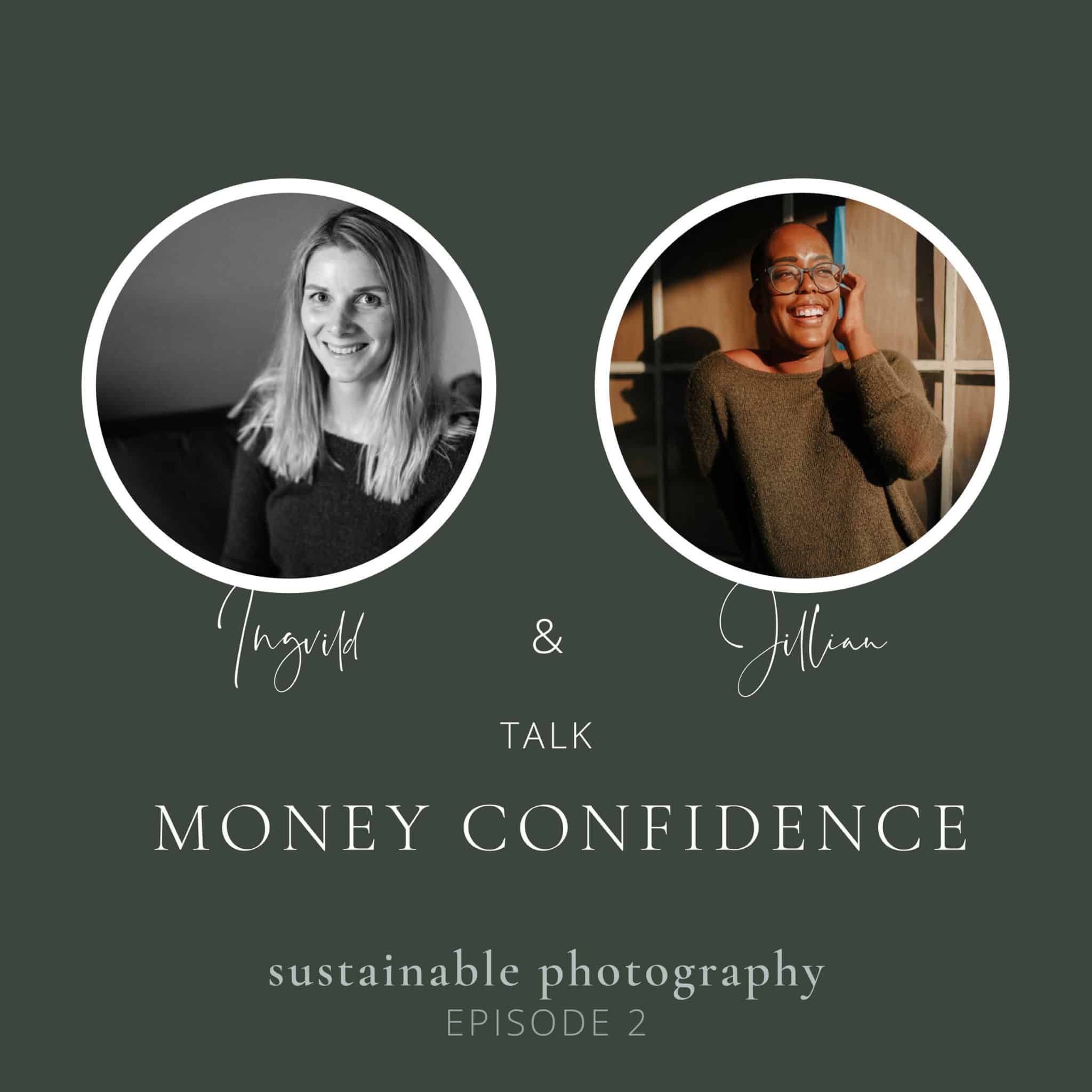Episode Transcript
[00:00:00] I've promised to do more Q A episodes because it's a good way for you to get your questions answered and it's a good way for us to kind of stay in touch, if that makes sense. So keep sending in your questions and I'll be saving them for the next episode. But the questions that I'm going to answer today, they are a mix of things you've sent me on Instagram, things you've sent me via email when I've asked for it, and it's also stuff that's come up in my Facebook group, sustainable photography. So there's plenty of ways you can send in questions. So I'm just going to go through them one by one and hopefully you'll think this is really useful as well, even if you didn't submit a question. And if you are regretting that, please send it in now because I'd love to know what you want to know more about.
[00:00:50] The first question is, how can I effectively market my business without spending a ton of money?
[00:00:57] Okay, that's a good question. And the first thing I would do is to look at where your clients have come from so far.
[00:01:09] Oftentimes we can spend a lot of time marketing in a place and then we don't pay attention to whether it's working or not. So if you look at where your clients are coming from and you find that, oh, all of them are coming from my website or from Instagram, and then you're spending all your time over on Facebook or LinkedIn, then you probably want to change that and use the social media that's the better fit.
[00:01:46] Because if you don't want to spend money, then social media is one of the ways that you can market your business without spending a ton of money. And being good at networking is another one making sure that people around you know what you do and are remembering to talk about you. I would also reach out to past clients and make sure that they talk about you to their friends, at least if it's clients that you want to work with again and that you think have friends that are a good match for you. So when that's said, I would encourage you to set aside a certain percentage of what you're getting in to spend on marketing. Because spending money on marketing can also be very effective. And as long as you've got money set aside for that, then it's so much easier to spend that money.
[00:02:42] And usually spending your money on meta know ads on Facebook or Instagram, that's the best way for most of us to do marketing these days? Next question. Do you have some practical tips for making sure that my clients are happy when they work with me, that I get good reviews afterwards?
[00:03:03] Yeah, I definitely have some practical tips for that. So making sure that our clients are happy is the most important thing that we do. And to do that, you want to make sure that you know what it is that you want to give your client and you want to make sure that you don't promise too much. So you want to make sure that you're giving more than you said. And oftentimes it might feel a bit daunting to do more and give more because you're probably giving too much already and you're probably overworked and tired.
[00:03:40] So honestly, what I suggest, instead of just giving more and doing more, do it the other way around and start promising less. And when you do give more, don't give tons more. Just a little bit more is fine.
[00:03:58] Sometimes it's also about the little things. For example, that you make sure that you tell what's going to happen next, that they don't have to ask any questions, that you tell them, this is where we're meeting. This is what you should wear, that you send out little reminders and that you're easy to get a hold of. But to make sure that you are also sticking to your boundaries.
[00:04:23] Let them know what they can expect. Let them know if they should expect an instant reply or if it's going to take three business days.
[00:04:32] Whichever you prefer is fine. But it's all about communicating it, because it's not like there's a right way of doing things. There's your way of doing things, which is okay because it's your business, but you need to communicate that. You need to let your clients know how things work when they're working with you.
[00:04:52] Don't leave it up to them to guess or to ask questions. You should take charge. So when you're working with someone, make sure that they are getting more than what they thought they were getting. Don't promise them a really short delivery time and then deliver it right on the day or even worse, a few days or weeks later.
[00:05:14] Promise them a really long delivery time and give it to them beforehand, and then give it sooner than what they're expecting. You don't have to give a lot of gifts and send a ton of emails, but just remembering what they've told you, you know what they do for a living, you know what their names are. And if you're doing a family session or a wedding, you also know the names of their kids and their parents, for example. And then most importantly, when you've done these things and you know that they're happy, ask them for a review. Ask them to send you something about how it was to work with you and what they were happy about. And if they weren't that happy, ask them about that as well. Make sure that they get to tell you about the things they weren't happy with and make sure that you learn from it. What kind of self care do you recommend for a photographer who's scared of burning out and to have that work life balance that everyone's talking about?
[00:06:19] That's another great question. And the first thing I would recommend is to make sure that your business is set up in a good way where your prices aren't too low so that you kind of have to work nonstop. Because that's often the problem, that we have so low prices that we have to work too much and then we don't have the option to say no to work and to take more time off.
[00:06:47] So I would really, really recommend you start there making sure that your prices are where they have to be for you to take on probably fewer clients. Because if you're asking this question now, you're probably at the place where you're saying yes to too many things and you're working with too many clients. You also want to make sure that you know what you need to take care of yourself or what you're missing now. Maybe you need more sleep. Maybe you need to do more exercise. Maybe you just need to be outside more, have more time with your family. You need to figure out what you need and that needs to get added to your plan. In the same way where I talk about paying yourself first to make sure that you don't just get whatever is left over in your business bank account, you want to do the same thing with self care. You don't get whatever time is left at the end of the day or month.
[00:07:46] But you should prioritize self care and make sure that that gets added to your plan and that you prioritize it, that you actually take the time for you before you finish all your work. And I know that that's really hard. I think it's really hard, too. I tend to work way too much because I enjoy it so much, and then there really isn't enough left over for me because I haven't been good enough at prioritizing it. But it's added to my plan. My 2024 plan is there. It's telling me what to do. It's telling me that I should go for more walks and go to the gym and do all those things, and I have to make sure that I add it to my weekly schedule. For me, planning is the solution to most things, and maybe it could be that way for you as well. So I'm just going to do one more and save the rest for the next q a episode can you give me some advice on how to price my work? I haven't been doing this very long and I feel like I can't charge the same as everyone else. This is also a good question, and it's one that I've been asked several times before, because pricing is probably the most difficult thing that we do when we have a business.
[00:09:09] It would be so much easier if there was just like the right price and you just knew this is what it is. There isn't anything to worry about. Everyone has the same price. We're done. But as you yourself say in this question, you don't have that much experience. And if you were to charge the same price as someone who's been doing it for 20 years, that might feel wrong. And that's the thing that I want us to worry less about our feelings.
[00:09:38] What you feel about your prices shouldn't really be so relevant when you are determining it. So when you're setting your price, you need to worry about the facts.
[00:09:49] And the facts are how much work can you take on? How much money do you want to get paid? What are your expenses like? Are you imagining there be more expenses in the future? You need to worry about those things so that you can set prices that are going to be sustainable in the long run.
[00:10:11] Because if you set your prices too low, because your experience is too low, then you're going to have to make a pretty big jump quite soon.
[00:10:22] And when you make that jump, you have to start over, because it's going to be unlikely that people who've been paying low prices to kind of come along for the journey when you increase them.
[00:10:36] A good way of doing this is to look at other businesses that are working with people in training, so to speak, like apprentices, where, for example, if you look at your local hairdresser, I bet they sometimes have an apprentice in where the prices are lower and you'll know the price is lower because they're still learning. And part of the problem that I've seen so many times is that photographers are charging a low price because they don't have the experience, but they don't mention that anywhere. It doesn't say, hey, my prices are about half of everyone else because I don't have too much experience and I'm working to build my portfolio and to gain experience.
[00:11:27] It just says the lower price. So if someone were to come across you, they might just think they've made a bargain and they don't know that you don't know what you're doing. So if you want to charge lower prices, make it like an apprentice rate. Hey, I know that my prices are going to be this when I'm fully trained, but for now my prices are this. So you can get a better deal if you act now because I'm building my portfolio, like whatever it needs to be for you to be confident in still doing it and taking on clients when you're starting out, you might not know what your niche is going to be. You might not know what experience you want to give your clients. So first, it's okay to just worry about all the practical things, the time you spend, your expenses and how much you want to make. And you can either give a discount based on that. While you're building your portfolio, you can work for free, which might be even a better option while you're building your portfolio. And not even mention that it's possible to get you to do work for them at a discount.
[00:12:46] And when you know more about what you want to do and who you want to work with, and all the things that you have to offer, the things that make you unique, and how you can present what you do in a way where people are more than happy to pay a higher price.
[00:13:06] And then after you've done that for a while, you're going to see that you have enough photos, you're going to see that you know what you're doing and you know who you want to work with, and then you can create a more lasting offer where you are doing something that's really you, something where you are giving your clients a unique experience and you know how to present that and talk about it. And while I'm saying this, I also want to mention that most photographers that I've seen and worked with, they know how to take photos. They know how to use their camera and to give their clients really great photos.
[00:13:50] But they don't know about business. They don't know about pricing strategically and creating a great brand and how to market to their dream client. And for most photographers, that's what they need to work on. And unfortunately, very few do.
[00:14:09] Most photographers think that the more they know about photography, the more workshops they attend, the more styled shoots they go to. The more experience they have working with clients, the more they can charge or the better things will be, the more a business they'll get.
[00:14:27] But it's not really the case.
[00:14:30] If you just work without a strategy, you'll likely get burnt out, you'll have way too much on your plate and you won't know how to stop it from spiraling out of control.
[00:14:45] Or you might not get any clients to work with at all because you don't know about the strategies, you don't know about branding and marketing and showing up in the right way that's going to get you your right clients.
[00:15:00] If you are struggling in your business, whether that's because you don't have your systems in place, if it's because you're not working with the right clients, getting enough money, whatever it is, send me a DM on Instagram. You'll find me at Ingvild Kolnes Ingvildkolnes and let's see if I can help you out. My main offer is a one year mentorship program where we go through your business and find the right way to move forward for you.
[00:15:34] Because there's no blueprint, there's no do this and everything else will fall into place. You have to do the right thing for you and for your business and we can figure out what that is together if you want to. If you're a good fit for this. So send me a DM and we can talk about it. But in my experience, most photographers wait too long before they start taking their business seriously and they'll just do what they've done always. And even if things are going great in your business, you're probably missing out on a lot of things that could be done better and you can end up doing better. And I'm not saying that I'm it for you, but I'm saying that there's something out there where you can learn more and do more and better than what you're doing today. So I don't want you to play small. I want you to find the right person who can help you where you are today. And to find out if that's me, send me a DM, sign up for a call or send me an email, whatever works for you. And let's find out if I can help you get to the next level.
[00:16:50] You just listened to an episode of sustainable photography. Please share this episode with a photographer you care about.


